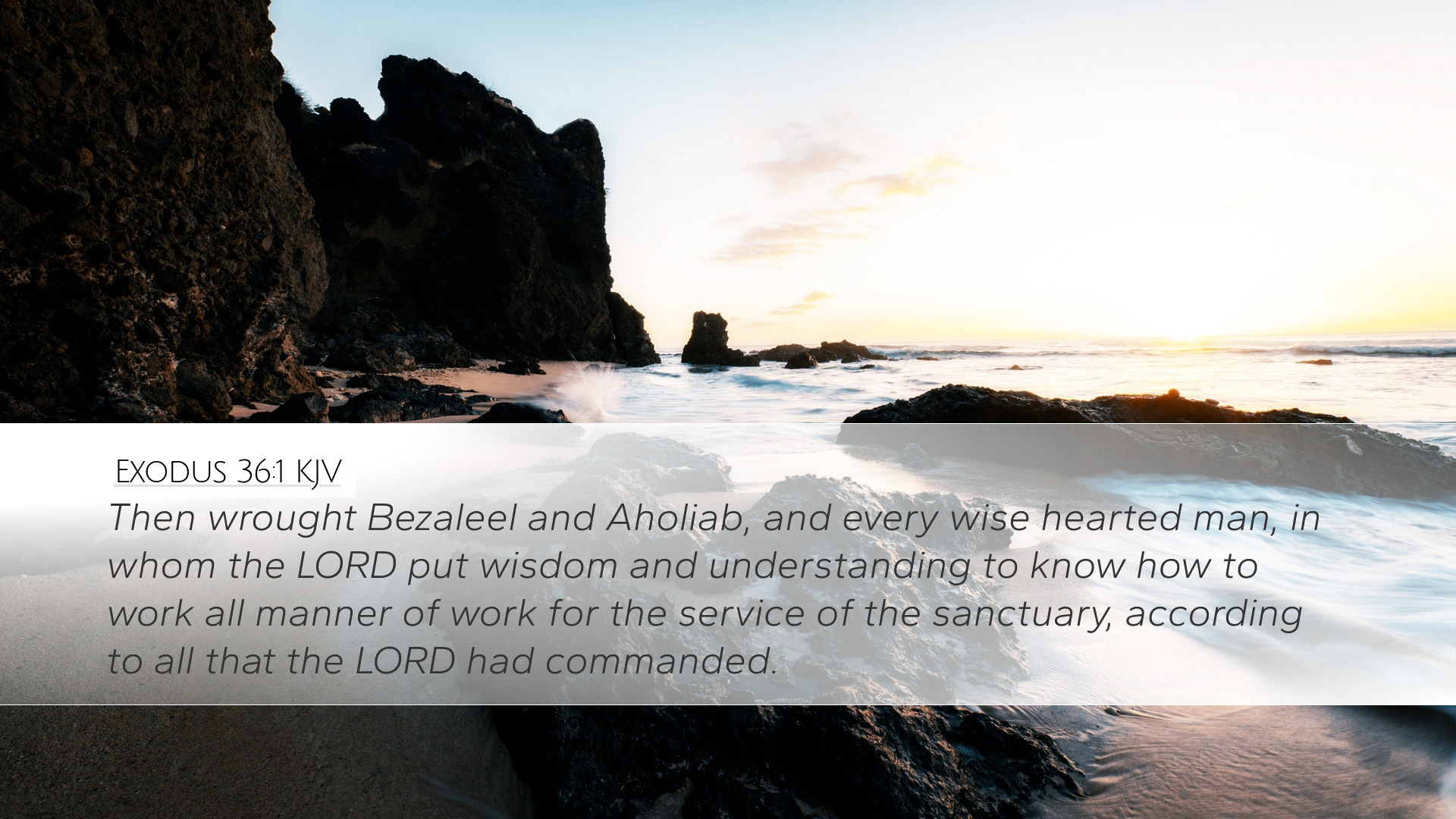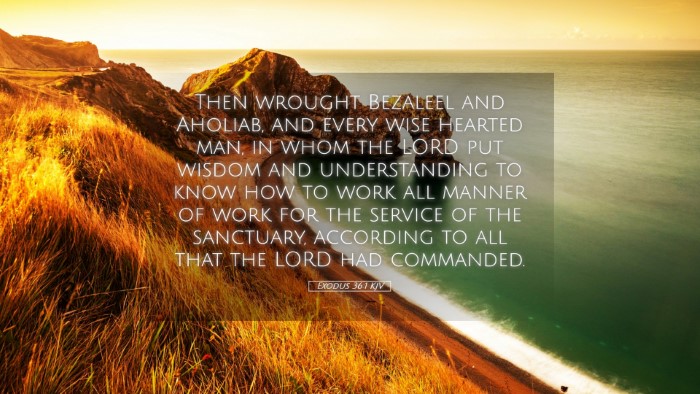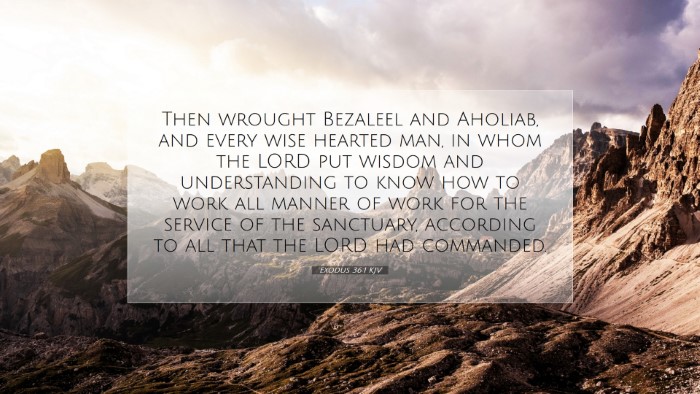Exodus 36:1 Commentary
Verse: “Then wrought Bezaleel and Aholiab, and every wise-hearted man, in whom the LORD put wisdom and understanding to know how to work all manner of work for the service of the sanctuary, according to all that the LORD had commanded.”
Introduction
The verse Exodus 36:1 captures a moment during the construction of the Tabernacle, emphasizing the roles of Bezaleel and Aholiab alongside the skilled craftsmen endowed with divine wisdom. It signifies the collaborative effort in service to God, showcasing the importance of divine inspiration in the ministry of craftsmanship.
Contextual Background
To fully comprehend Exodus 36:1, it is essential to explore the broader narrative within Exodus. Following the Israelites' exodus from Egypt, God provided detailed instructions for the building of the Tabernacle— a mobile sanctuary designed for worship while the Israelites journeyed through the wilderness. The work, as mandated by the Lord, was significant not only in functionality but also in its symbolic essence, representing God's dwelling among His people.
Key Figures: Bezaleel and Aholiab
Bezaleel is introduced in Exodus 31:2-6 as the chief artisan, “filled with the Spirit of God, in wisdom, and in understanding, and in knowledge, and in all manner of workmanship.” His name, meaning "in the shadow of God," signifies a divine calling and the favor of God resting upon him.
Aholiab, named alongside Bezaleel in this passage, signifies partnership in ministry. His name means "the tent of the father," which indicates a role that is complementary and supportive. These two figures encapsulate the importance of teamwork in fulfilling God's instructions.
Wisdom and Understanding from the LORD
This verse underlines a profound theological truth about the source of wisdom and understanding in ministries and crafts. As highlighted by Albert Barnes, the “wisdom and understanding” which the workers had came directly from God, illustrating the notion that all skills, talents, and insights come from His Spirit.
- God’s Sovereignty: The passage serves as a reminder that all giftings and abilities for service flow from God's sovereign will.
- Empowerment through the Spirit: The empowerment of the workers is a prelude to understanding the New Testament concept of spiritual gifts, emphasizing that ministry is an extension of divine grace.
The Work of the Sanctuary
The sanctuary work goes beyond mere construction; it is about creating a place for the sacred—the dwelling place of God among His people. Adam Clarke remarks that this was “the work for the Lord, intended for His glory and the good of His people.” It infers that sacred work, whether in building or in ministry, requires a heartfelt devotion to the principles of God’s holiness.
Lessons for Contemporary Ministries
The insights derived from Exodus 36:1 extend to all aspects of modern ministry and community service.
- Divine Calling: Just as Bezaleel and Aholiab were called and equipped by God, so are present-day leaders and craftsmen called to recognize their divine assignment.
- Collaboration and Teamwork: The emphasis on collaboration among skilled workers reminds contemporary believers of the critical importance of working together in unity to fulfill the mission of the church.
- Service for God’s Glory: Whether in church settings, social services, or the secular workforce, the aim should always be to bring glory to God and to lead others to Him.
Conclusion
Exodus 36:1 encapsulates profound theological and practical implications for believers today. Understanding the roles of Bezaleel and Aholiab in a work ordained by God affirms that every task undertaken in God’s name, inspired by His Spirit, carries a significant purpose in the divine narrative. As pastors, students, theologians, and scholars, the challenge lies in recognizing that in all craftsmanship and ministry, it is God's wisdom that empowers and directs the work of the sanctuary—just as it did so many years ago.


